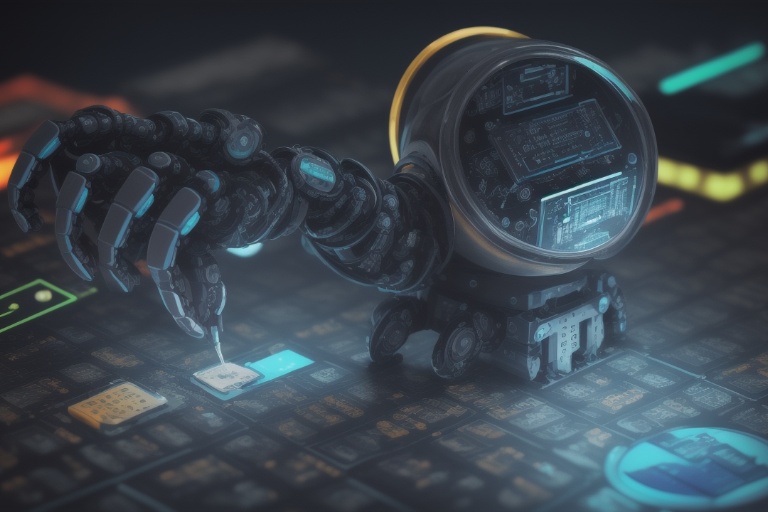The landscape of technology sees artificial intelligence (AI) continuing to evolve and expand its capabilities, opening up new frontiers for innovation and efficiency. A particularly intriguing area of development is the use of AI in academic writing. AI has reached a point where it can generate essays that may mirror the language and structure expected at various educational levels. While this is a testament to the sophistication of modern AI algorithms and neural networks, it introduces a variety of ethical considerations and practical limitations that students and educators must carefully assess.
The landscape of technology sees artificial intelligence (AI) continuing to evolve and expand its capabilities, opening up new frontiers for innovation and efficiency. A particularly intriguing area of development is the use of AI in academic writing. AI has reached a point where it can generate essays that may mirror the language and structure expected at various educational levels. While this is a testament to the sophistication of modern AI algorithms and neural networks, it introduces a variety of ethical considerations and practical limitations that students and educators must carefully assess.
AI-Generated Writing: From Clunky To Convincing
AI-generated text has made a quantum leap from its earlier, rudimentary output to producing content in a more fluid, human-like manner. This has been made possible through the implementation of advanced neural networks and machine learning algorithms. As a result, the content created by AI writing tools is now more coherent and readable than ever before. Many educational platforms, news outlets, and social media discussions have taken note of this advancement, triggering a widespread conversation about the implications of AI in essay writing.
Ethics and Academic Integrity
Beyond technical capabilities, the application of AI raises important ethical questions. The premise that AI could automate student essays prompts us to reflect on the underlying purpose of academic assignments. The notion paraphrased from the movie Jurassic Park rings true here: Just because we can leverage technology for a particular task, it doesn't necessarily mean we should.
Honesty and integrity stand at the core of academia. The reliance on AI to craft an essay can blur the lines of authorship and originality, leading to potential issues with plagiarism. Essays produced by AI are often formed by amalgamating available content from the internet. They can lack the depth of original thought and uniquely formed arguments that are essential to scholarly discourse. Essentially, AI writing tools could become mere aggregators of existing information, rather than generators of new insights.
The True Purpose of Essay Writing
The objective of essay writing extends beyond merely completing an assignment. It is an exercise in formulating a coherent argument, synthesizing various sources, and cultivating critical thinking skills. The act of expressing one's thoughts leads to personal growth, problem-solving abilities, and independent intellectual development. AI tools might be able to facilitate the mechanics of writing but fall short in contributing to these deeper educational goals.
Limitations of AI in Accuracy
The reliability of information provided by AI bots is another aspect to consider. AI systems are constrained by the data they are trained on: for example, OpenAI's ChatGPT can only provide information up until 2021. Consequently, AI-generated essays might contain outdated or even incorrect facts, nature by expecting AI to be fully up to date or always factually sound may be misguided.
Leveraging AI as a Writing Assistant
Despite the drawbacks, AI should not be entirely dismissed as a tool for supporting essay writing. Rather than handing over the essay-writing process entirely to AI, it could be used as an intelligent assistant that helps enhance our own writing efforts. AI can contribute to the editing process by suggesting grammatical corrections, rephrasing for clarity, and proposing stylistic improvements. By taking advantage of these supportive features, students can develop their composition skills and produce higher-quality written work.
Balancing AI Capabilities with Intellectual Development
In considering the question of whether AI can write an essay for us, it is apparent that while AI has the technical ability to produce written content, relying solely on it is fraught with ethical concerns and has the potential to stunt students' intellectual growth. The true value in writing lies in crafting original thought, which is critical to our development as thinkers and creators. However, AI can undoubtedly be harnessed as a powerful ally in the writing process, providing intelligent input while allowing the student to maintain control over the development of their ideas.
AI tools can also serve as research assistants, helping to navigate vast amounts of information more efficiently and suggesting sources that might otherwise be missed. It is vital, however, to use AI outputs as a preliminary guide and to thoroughly vet the provided information against reliable sources and the application of critical judgment.
In integrating AI into the realms of programming, artificial intelligence, and machine learning research, finding the optimal combination of AI-driven assistance and human ingenuity becomes paramount. By striking the appropriate balance, we can indeed maximize the potential of our AI tools to enhance both the writing process and our broader comprehension of these complex fields.
Information for this article was gathered from the following source.




